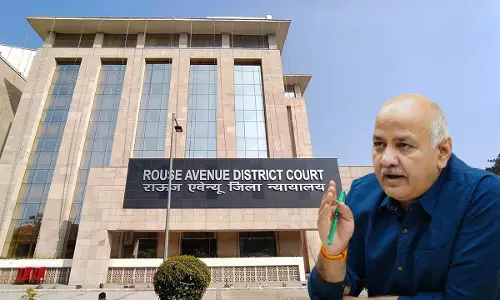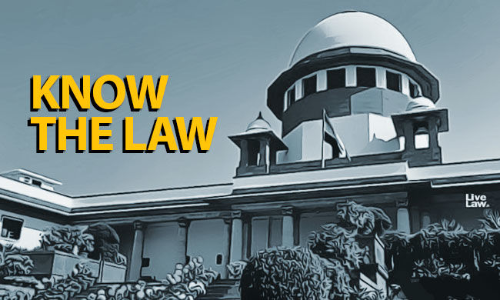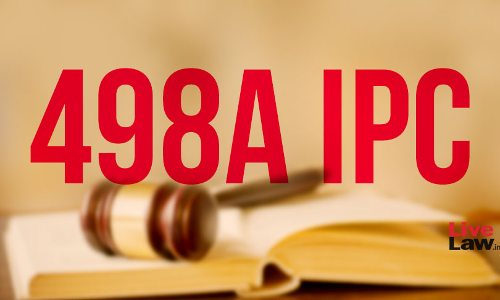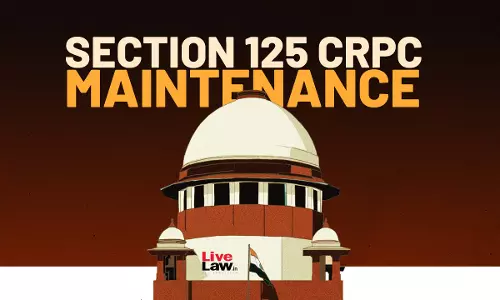- Home
- /
- Know the Law
- /
- SC Explains Difference...
SC Explains Difference Between Retrospective And Retroactive Statutes [Read Judgment]
While holding that the Interest on Delayed Payment to Small Scale and Ancillary Industrial Undertakings Act, 1993, is prospective in operation, the Supreme Court has delineated the difference in concepts of retrospective and retroactive operation of laws. The bench comprising Justice AK Sikri, Justice Ashok Bhushan and Justice S Abdul Nazeer was considering these appeals after a...
- Your Subscription Supports Independent Journalism
- Your Subscription Supports Independent Journalism
- Ad Free Content
- Special And Exclusive Stories First Available To Subscribers only
- Copy Of Judgments/ Orders With Every Reports
- Weekly Round Ups Of Supreme Court High Court Judgments/Orders
- Monthly Digests Of Supreme Court And High Courts
- Yearly Digests Of Supreme Court And High Courts
- Live Updates Of Supreme Court And High Courts Hearings
- WhatsApp Updates
- News Letters
While holding that the Interest on Delayed Payment to Small Scale and Ancillary Industrial Undertakings Act, 1993, is prospective in operation, the Supreme Court has delineated the difference in concepts of retrospective and retroactive operation of laws.
The bench comprising Justice AK Sikri, Justice Ashok Bhushan and Justice S Abdul Nazeer was considering these appeals after a bench of Justice V Gopala Gowda and Justice Arun Mishra was split on the question whether the Act is retroactive or not. Justice Gowda had opined that provisions of the Act were retroactive in nature, while Justice Mishra held that it was neither retrospective nor retroactive, but prospective.
The bench considered the issue of whether the Act was applicable when the contract for supply was entered between the parties prior to enforcement of the Act i.e. 23.09.1992. It held that the Act was clearly prospective in operation and it was not necessary to term it as retroactive in operation.
The bench observed that 'retroactivity' in the context of the statute consists of application of new rule of law to an act or transaction which has been completed before the Rule was promulgated.'''
The bench quoted from Jay Mahakali Rolling Mills vs. Union of India: "Retrospective" means looking backward, contemplating what is past, having reference to a statute or things existing before the statute in question. Retrospective law means a law which looks backward or contemplates the past; one, which is made to affect acts or facts occurring, or rights occurring, before it comes into force. Retroactive statute means a statute, which creates a new obligation on transactions or considerations or destroys or impairs vested rights.
It also referred to another judgment in which these concepts were explained by quoting from Advanced Law Lexicon by P. Ramanath Aiyar:
- "Retroactive- Acting backward; affecting what is past. (Of a statute, ruling, etc.) extending in scope or effect to matters that have occurred in the past. Also termed retrospective.
- 'Retroactivity' is a term often used by lawyers but rarely defined. On analysis it soon becomes apparent, moreover, that it is used to cover at least two distinct concepts. The first, which may be called 'true retroactivity', consists in the application of a new rule of law to an act or transaction which was completed before the rule was promulgated. The second concept, which will be referred to as 'quasi-retroactivity', occurs when a new rule of law is applied to an act or transaction in the process of completion.... The foundation of these concepts is the distinction between completed and pending transactions...."
- Retrospective- Looking back; contemplating what is past. Having operation from a past time. 'Retrospective' is somewhat ambiguous and that good deal of confusion has been caused by the fact that it is used in more senses than one. In general however the Courts regards as retrospective any statute which operates on cases or facts coming into existence before its commencement in the sense that it affects even if for the future only the character or consequences of transactions previously entered into or of other past conduct. Thus, a statute is not retrospective merely because it affects existing rights; nor is it retrospective merely because a part of the requisite for its action is drawn from a time and antecedents to its passing.
Read Judgment

















